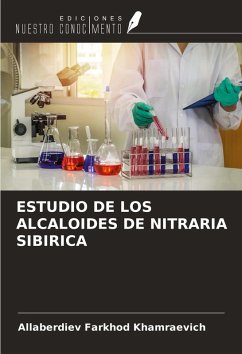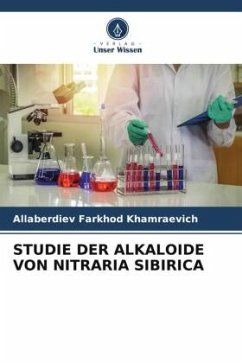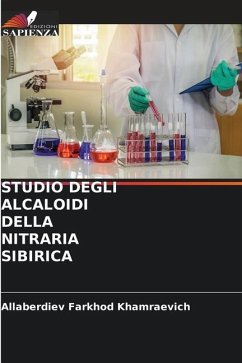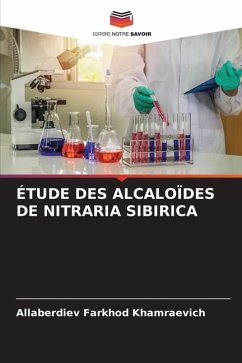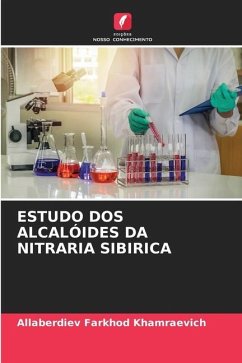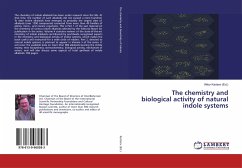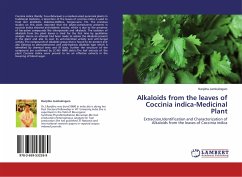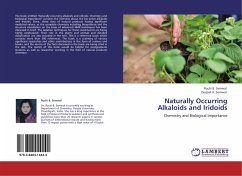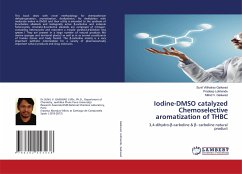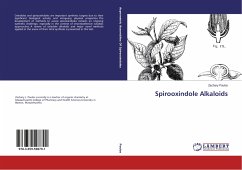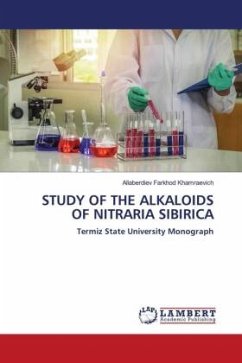
STUDY OF THE ALKALOIDS OF NITRARIA SIBIRICA
Termiz State University Monograph
Versandkostenfrei!
Versandfertig in 6-10 Tagen
40,99 €
inkl. MwSt.

PAYBACK Punkte
20 °P sammeln!
It is known that some of the drugs currently used in practical medicine are natural compounds obtained from plants, and these drugs have a number of advantages over synthetic drugs obtained by synthesis. They have a very gentle effect on the human body and do not have additional harmful properties. Among them, alkaloids isolated from plants are powerful biologically active compounds, many of which are widely used in medical practice due to their valuable, healing properties. 11 species of plants belonging to the Zygophyllaceae family, Nitraria family are known in the world, while 3 species of ...
It is known that some of the drugs currently used in practical medicine are natural compounds obtained from plants, and these drugs have a number of advantages over synthetic drugs obtained by synthesis. They have a very gentle effect on the human body and do not have additional harmful properties. Among them, alkaloids isolated from plants are powerful biologically active compounds, many of which are widely used in medical practice due to their valuable, healing properties. 11 species of plants belonging to the Zygophyllaceae family, Nitraria family are known in the world, while 3 species of this plant species in the flora of Central Asia are found by academician S.Yu. It is studied in the laboratory of alkaloids of Yunusov Institute of Chemistry of Plant Substances. So far, more than 60 alkaloids have been isolated from 3 types of plants. More than 50 of these are new substances, belonging to 15 types in terms of chemical structure, which make a significant contribution to the enrichment of alkaloid chemistry and organic chemistry, and are also important pharmacologically. It should also be noted that interest in Nitraria sibirica plant alkaloids is growing in foreign countries.



